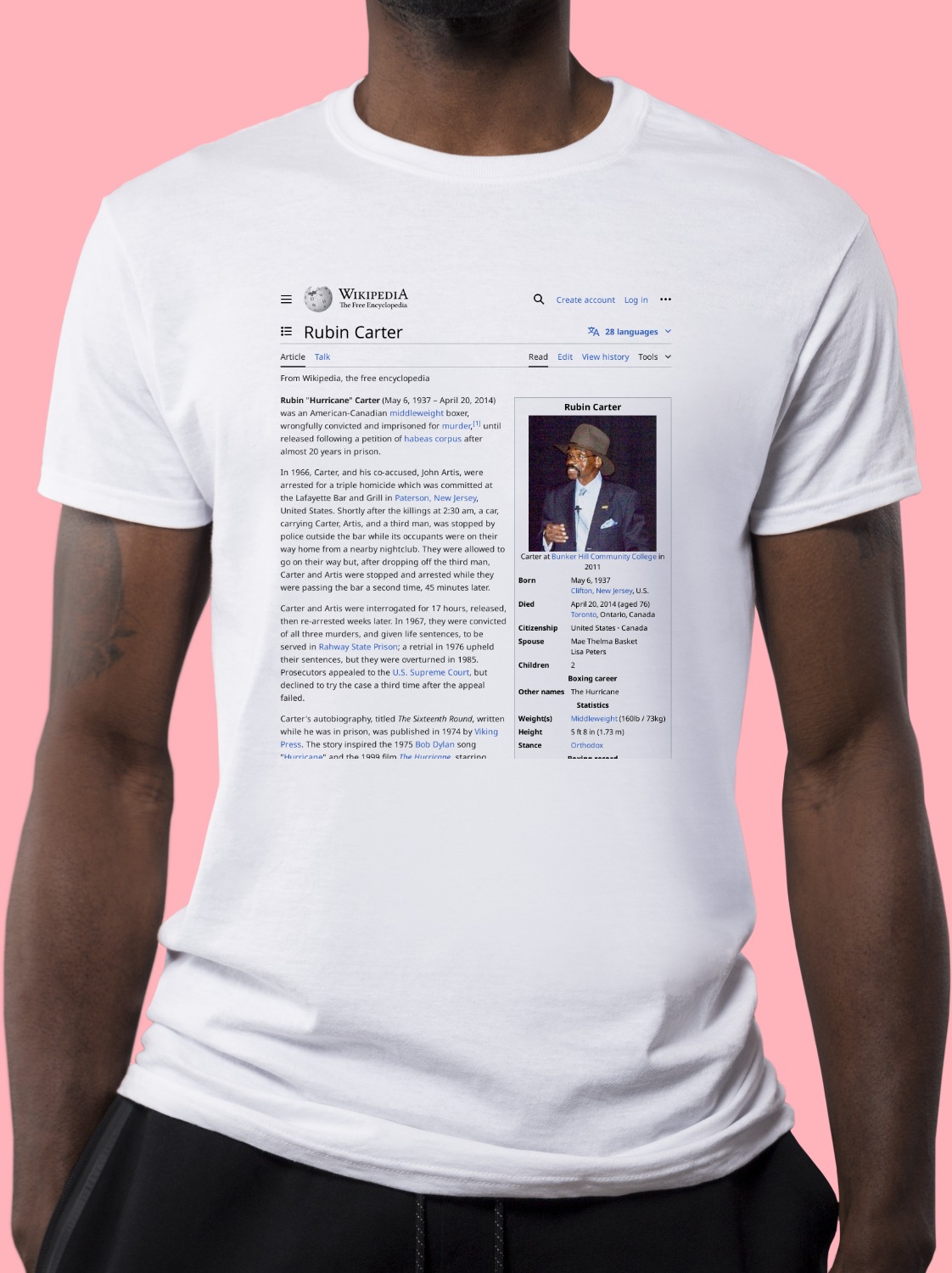
Rubin Carter Shirt
A classic cotton tee emblazoned with the Wikipedia article on Rubin Carter ↗.
cotton tee emblazoned with the Wikipedia article on Rubin Carter ↗.- Preshrunk jersey knit
- Seamless double-needle 2.2 cm collar
- Taped neck and shoulders
- Tear away label
- Double-needle sleeve and bottom hems
- Quarter-turned to eliminate centre crease
Rubin "Hurricane" Carter (May 6, 1937 – April 20, 2014) was a black American middleweight boxer who was wrongfully convicted and imprisoned for murder, until released following a petition of habeas corpus after spending 18 years and 4 months in prison.
In 1966, Carter and his co-accused, John Artis, were arrested for a triple homicide which was committed at the Lafayette Bar and Grill in Paterson, New Jersey, United States. Shortly after the killings at 2:30 AM, a car, carrying Carter, Artis, and a third man, was stopped by police outside the bar while its occupants were on their way home from a nearby nightclub. They were allowed to go on their way but, after dropping off the third man, Carter and Artis were stopped and arrested while they were passing the bar a second time 45 minutes later. In 1967, they were convicted of all three murders and given life sentences. Their sentences were overturned in 1985. Prosecutors appealed to the U.S. Supreme Court, but declined to retry the case after the appeal failed.
Carter's autobiography, titled The Sixteenth Round, written while he was in prison, was published in 1974 by Viking Press. The story inspired the 1975 Bob Dylan song "Hurricane" and the 1999 film The Hurricane, starring Denzel Washington as Carter. From 1993 to 2005, Carter served as executive director of the Association in Defence of the Wrongly Convicted, later renamed Innocence Canada.
In 2019, the case was the focus of a 13-part BBC podcast series, The Hurricane Tapes. The series was based on interviews which were conducted with survivors, case notes which were taken during the original investigations and 40 hours of recorded interviews of Carter by the author Ken Klonsky, who cited them in his 2011 book The Eye of the Hurricane.
About Wikishirt
Wikishirt is a retail experiment that lets you buy a shirt with any Wikipedia Article printed on it. There are over 5 million Wikipedia articles, so we have over 5 million shirts.Check out our homepage for random featured shirts and more!